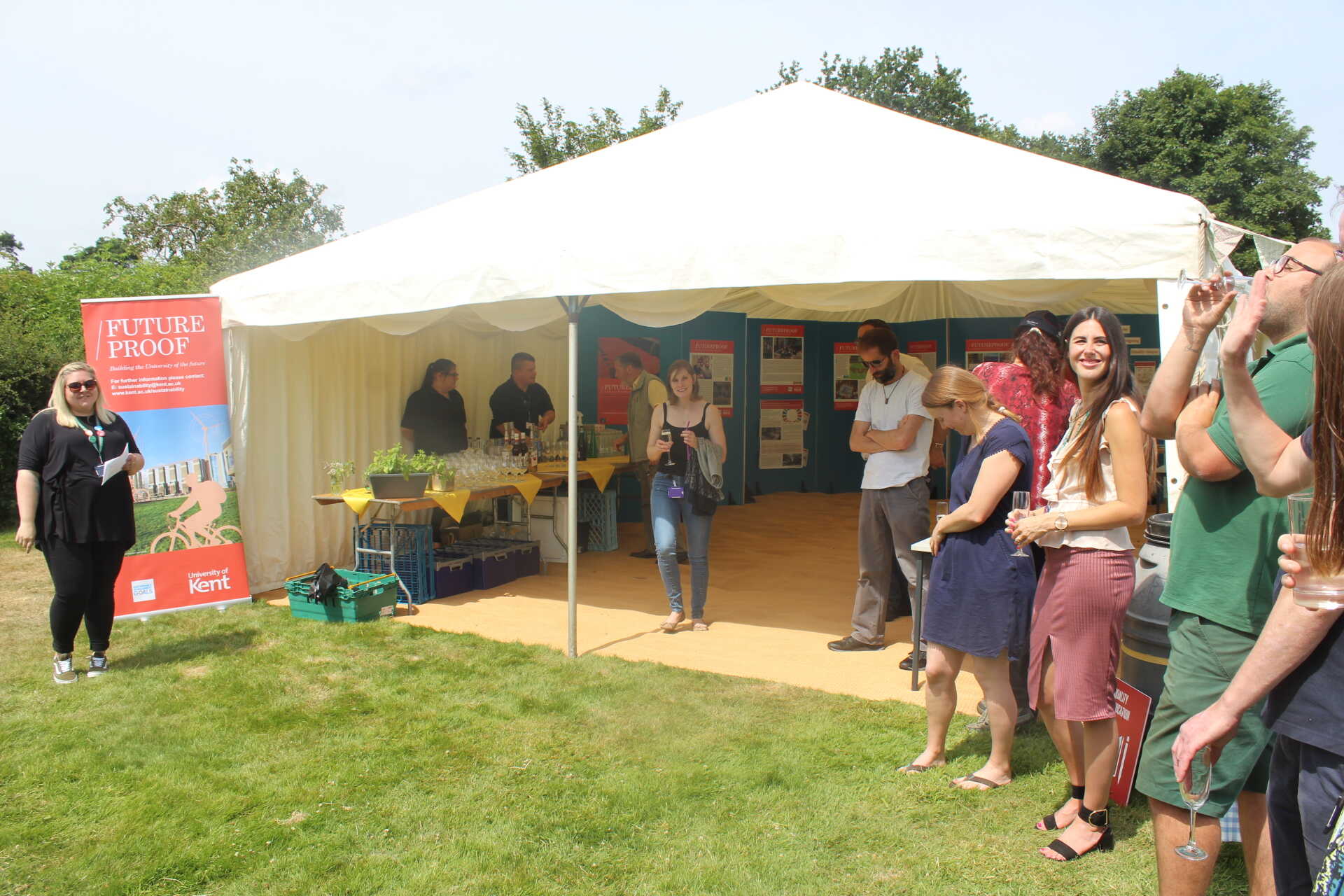
A guide to reducing the impact of your event, collated by Sustainability Champions
This Sustainable Events Guide has been compiled by Sustainability Champions at Kent, based on their own experiences that outline some recommendations and things to consider during the planning process. This will support and help you to create a more sustainable event, whatever you're planning. Sustainability can influence all aspects of your event no matter how big or small you are planning it. This guide provides considerations for the location, the promotion, food and drink, printing, handouts, freebies, clean-up, and the follow-up.
The University’s Catering, Estates and Design & Print teams are experienced in making sustainable choices and can support you and offer suggestions. They are willing to discuss alternative options and ambitious plans to support sustainability for the event(s) you are planning.
If you’ve read this guide and would like to talk through your plans, contact the sustainability team who will forward you onto the Sustainability Champions who have experience in this area.
You can also access our top tips for planning sustainable events that are inclusive and accessible in on a handy flyer. If you need this information in an alternative format please email DigitalAccess@kent.ac.uk
Having a clear purpose and objectives for outcomes will help you in making decisions which will impact on how sustainable your event will be. Confirm these with your team or manager if it is unclear.
A physical location may not be necessary. Would a virtual or hybrid event still achieve your objectives for the event and make it more accessible for remote learners or staff who work from home?
If a physical event is required, can you promote sustainable travel options? If international, could you also use local staff to manage the event rather than many Kent staff travelling out?
Does the event need to be hybrid so it opens up for both remote learners / staff WFH and in-person attendance?
Have you chosen to host the event at a time that is inclusive to attendees?
Will staff/students with caring/child-care responsibilities be able to attend?
For an evening event, have you considered whether public transport links are still available for guests to get home?
Allocate time for clear up and packing-down.
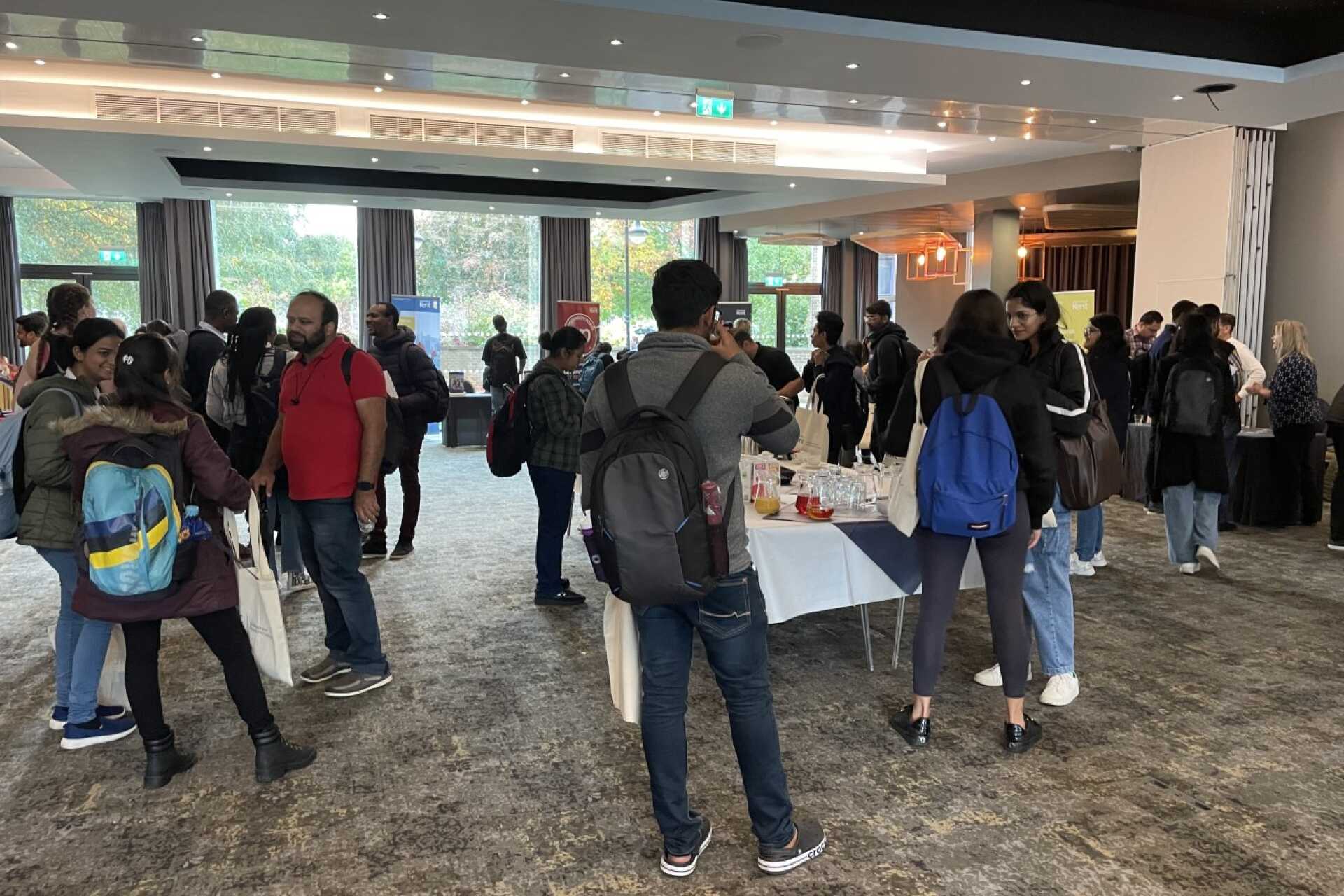
The International Student Experience Fair returned this year after a two year break due to the pandemic. It was an unknown on what the response would be from students and the level of engagement when we started planning. However, small things were trialled to improve the sustainability of the event.
For any catering queries or
bookings please either email internalcatering@kent.ac.uk
For Medway catering, email J.M.Jones@greenwich.ac.uk
A falafel and spinach burger from internal catering has a CO2e emission of 251g compared to a Brogdale beef burger with embedded emissions of 1701ge.
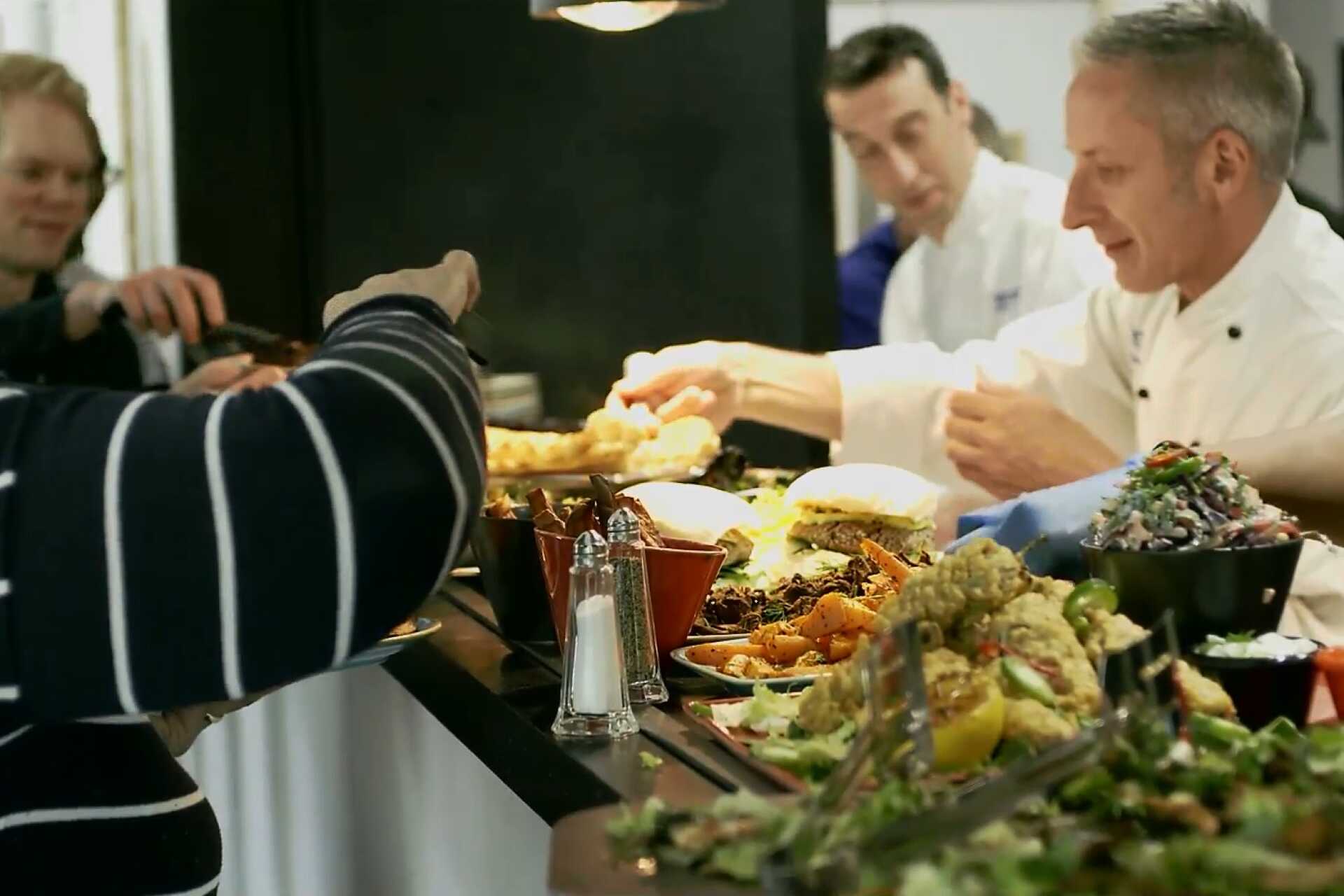
Practical tips and ideas to reduce food waste resulting from events.
We asked the team at Design and Print some questions to help you make more sustainable choices when working with them.
Please can you share any supply chain credentials, ethnically sourced for your branded goods etc?
Our suppliers do offer ethnically sourced & items made from recycled materials. If anyone requires quotes for specific recycled items, please email designandprintcentre@kent.ac.uk and we can supply the recycled credentials on each item. We print a lot of hoodies, sweatshirts, t-shirts etc. in-house using the Gildan range. We can share their full report which covers all the information regarding their supply chain.
Do you offer a recycling service for any leftover pamphlets / booklets etc, and how can people utilise this?
Yes, we use a recycling company for any unused/out of date publications that we have which the university does get paid for. Having said that, we do try to encourage department to think about how many copies are required to minimise wastage and as we print digitally, we can print on demand. If departments want us to recycle any publications that they have, please email designandprintcentre@kent.ac.uk and we can arrange collection to come back to us for recycling.
Do you have any suggestions for materials / service you provide for any outside signage? Is there an alternative to people laminating their own signs which can be difficult to recycle? Anything useful to include about the large roadside banners?
We can print posters on our large format machine that can be used externally for a short period of time on a paper that is recyclable. The road side banner vinyl is PVC so they do not degrade and can't be recycled. We can get hold of a PVC free banner vinyl which is biodegradable but it is much more expensive. More than happy to quote on the PVC free banners if required.
Please can you tell us more about the quality of paper used and if its possible it could be re-used again if not made date specific.
We print onto 120gsm uncoated sheet which is a heavier grade than standard photocopier paper (80gsm) which is a little more durable but ultimately, it comes down to how the end user handles & stores the sheets to whether they can be used again for another event.
Is there a cost comparison for people using D&P compared to doing their own printing in the office?
We offer very competitive rates for our printing service for high quality printing. I am not sure on the click rate on the MFD’s but what has to be calculated into the end cost is machine rental, paper, toner costs if applicable and the staff members time to print. We offer a complete service. Also for colour printing, our press has colour management software to ensure the correct colours are printed following the University of Kent branded guidelines. The colours produced on MFD’s are unlikely to match the universities colours. Our current prices are listed on our website: https://www.kent.ac.uk/estates/services/design-and-print/index.html
How do you deliver to offices - are posters still in clear plastic bags or do you use more sustainable packaging now?
We are using clear polybags currently, however this is under review and I am investigating alternatives. For deliveries around campus, we use an electric van.
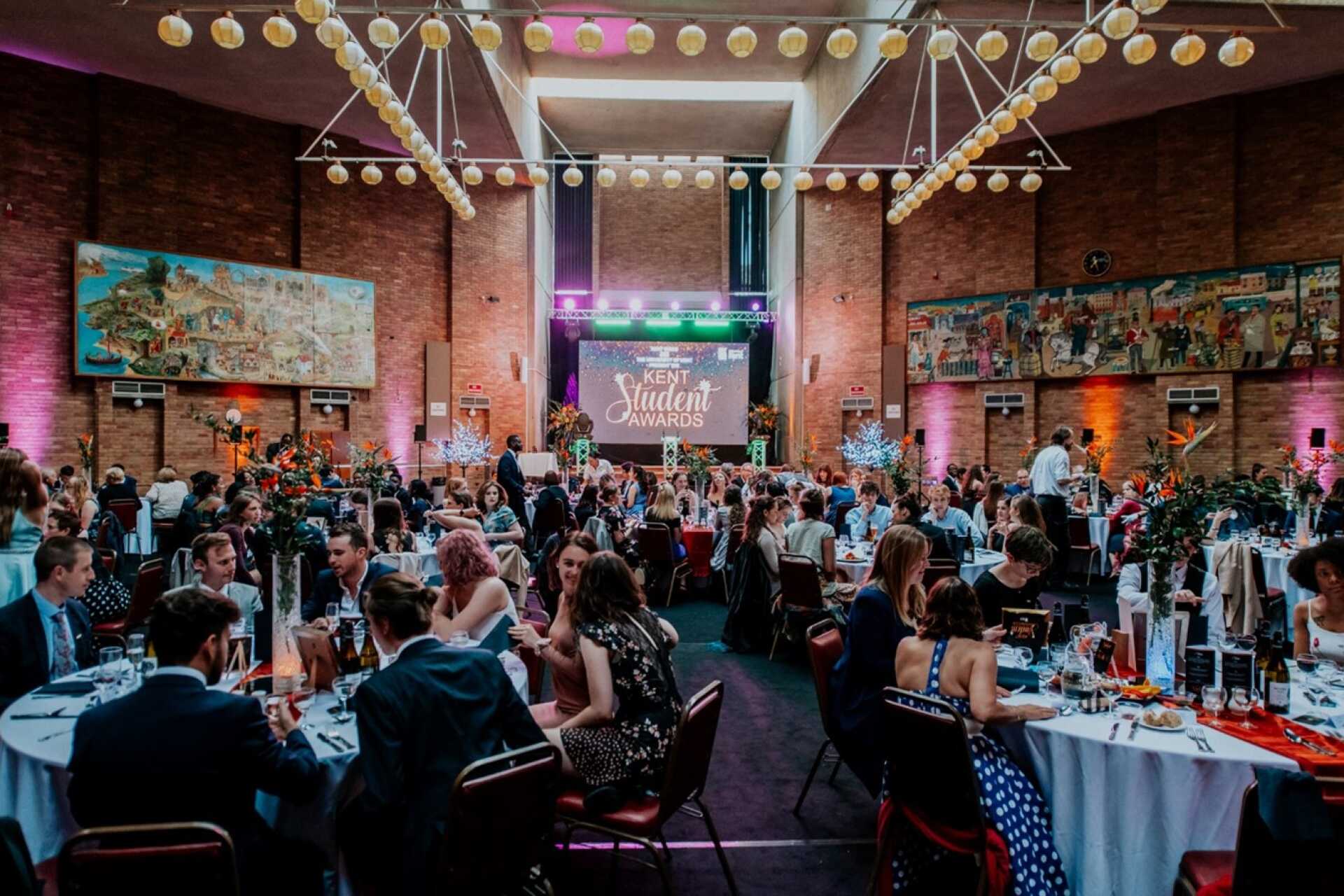
The Kent Student Awards is a collaborative scheme where the University of Kent works closely with Kent Union to recognise non-academic student achievement in a variety of areas. In 2019 it was organised with the UN Sustainable Development Goals in mind.
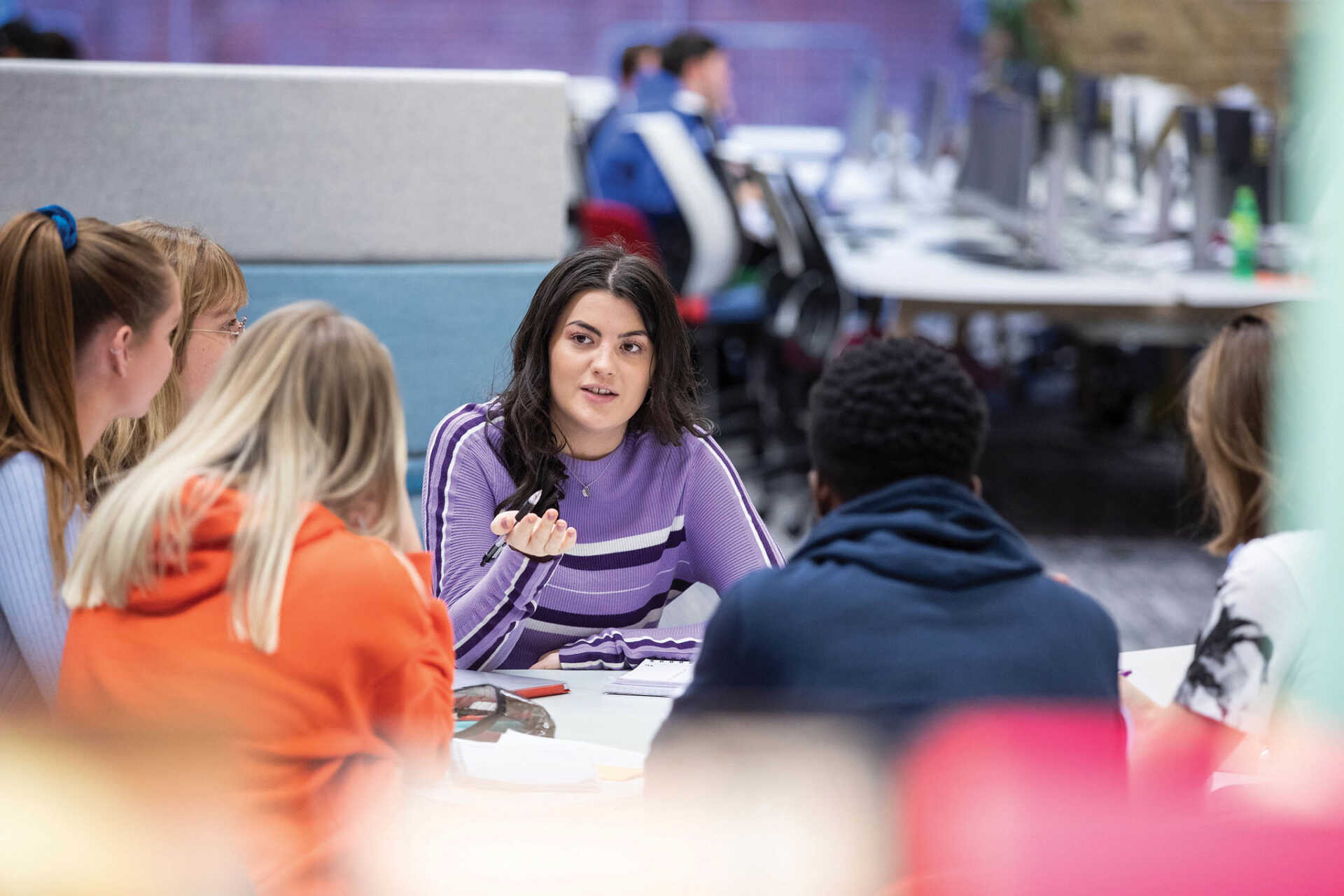
In early 2022, Emily Collins and team hosted their first in person student knowledge exchange since before the pandemic. This case study reflects the reality of planning an event with sustainability in mind and how improvements could be made for future events.
Between them, Emma Marku (Internationalisation Officer), Kelda McCabe (Business Information Officer) and Emily Collins (External Relations and Events Co-ordinator) have a wealth of experience of organising events at the University of Kent.
They know that sustainability isn’t always at the top of the agenda or easy to achieve, so have created this short guide to help you navigate the pitfalls of event management and provide the necessary information to help you make more sustainable choices along the way.
If you would like more information or have your own top tips please email sustainability@kent.ac.uk where the Sustainability Team will pass your information onto the Champions.